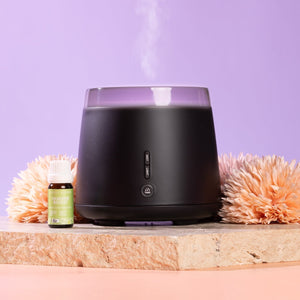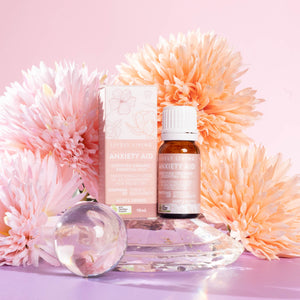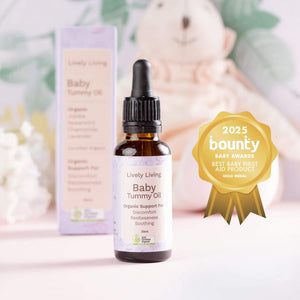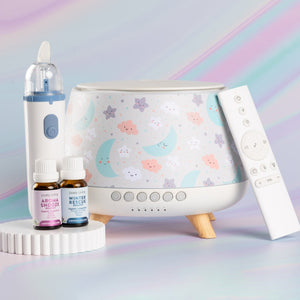Discover Frankincense Essential Oil Benefits for Health
Frankincense essential oil, a substance revered for millennia, holds a significant place in history and modern wellness. From ancient Egyptian ceremonies to contemporary aromatherapy practices, this potent essential oil continues to fascinate with its array of frankincense essential oil benefits. What gives frankincense oil its special status? Let's explore the diverse ways this aromatic treasure from the Boswellia tree can contribute to your health and overall well-being.
Table of Contents:
- What is Frankincense Essential Oil?
- Understanding Boswellic Acids: The Powerhouse Compounds
- Top 10 Frankincense Essential Oil Benefits
- Frankincense and Cancer Research: A Cautious Look
- Different Types of Frankincense Resin and Oil
- How to Use Frankincense Essential Oil
- Safety Considerations and Potential Side Effects
- Conclusion
What is Frankincense Essential Oil?
Frankincense essential oil is derived from the aromatic hardened resin of trees belonging to the Boswellia genus. These resilient trees, such as Boswellia carteri (also sometimes referred to as Boswellia carterii), Boswellia serrata, and Boswellia sacra, typically thrive in the arid, rocky, and mountainous regions of the Middle East, Africa, and India. The extraction of this precious oil frankincense involves carefully making incisions into the tree's bark, allowing the milky-white sap to ooze out and solidify into resinous tears.
These tears are then harvested and meticulously steam-distilled to produce the pure essential oil. The resulting frankincense oil possesses a complex aroma profile: warm, woody, and slightly balsamic, often with subtle spicy, fruity, or citrusy undertones depending on the specific Boswellia species and origin. Its rich scent has made it a staple in perfumery and incense for centuries, distinct from synthetic fragrance oils.
Historically, frankincense was highly valued, often considered more precious than gold, and played a vital role in religious rites, traditional herbal medicines, and cultural ceremonies across various civilizations. Today, its applications have expanded, with frankincense essential oil being a popular choice in aromatherapy, natural health, skin care, and even as a component in some frankincense supplements.
Understanding Boswellic Acids: The Powerhouse Compounds
A significant portion of the health benefits attributed to frankincense, particularly from Boswellia serrata, comes from a group of active compounds known as boswellic acids. These are pentacyclic triterpenes, with Acetyl-11-keto-β-boswellic acid (AKBA) being one of the most potent and studied. Boswellic acid is not typically found in high concentrations in steam-distilled essential oil, as these molecules are heavier and less volatile.
However, some specialized extraction methods or using the whole frankincense extract can provide these compounds. The presence of boswellic acids contributes significantly to the anti-inflammatory and potential anticancer properties associated with frankincense resin. When discussing benefits like joint pain relief or immune support, the role of these acids is often central, especially in studies using extracts rather than just the essential oil.
Research continues to explore the mechanisms through which boswellic acids exert their effects. This exploration is vital for understanding how frankincense can be used most effectively for therapeutic purposes. It also highlights the difference between the essential oil, prized for its aromatic and topical benefits, and frankincense extracts, often standardized for boswellic acid content for internal use.
Top 10 Frankincense Essential Oil Benefits
The applications of frankincense essential oil are varied. Here we explore some of the most recognized frankincense essential oil benefits, touching upon how this ancient remedy fits into modern wellness.
1. Reduces Inflammation and Pain
One of the most celebrated frankincense essential oil benefits is its capacity to address inflammation and associated pain. Boswellic acids found in frankincense, particularly from Boswellia serrata, have been shown to inhibit pro-inflammatory enzymes. This action can be particularly beneficial for conditions like knee osteoarthritis, helping to reduce osteoarthritis pain and improve mobility.
A number of studies have investigated frankincense for joint pain relief. For instance, research indicates that frankincense extract can lead to a significant reduction in pain and improvement in physical function for individuals with osteoarthritis. It may also play a role in mitigating joint lining inflammation and potentially slowing cartilage loss by protecting chondrocytes, the cells that maintain cartilage health. When applied topically with a carrier oil, diluted frankincense oil can be massaged into affected joints for localized relief, offering a natural approach to managing discomfort.
Further research continues, including investigations into topical boswellic acid formulations. Reducing symptoms of inflammation is a cornerstone of frankincense's traditional use. The effects on the joint lining are of particular interest to researchers looking for ways to manage chronic joint conditions.
2. Boosts Immune Function
Frankincense oil may play a supportive role in strengthening the immune system. Its recognized antibacterial properties can help the body fend off various pathogens. Some research has highlighted the oil's effectiveness against specific types of bacteria, contributing to its reputation as an immune-enhancing agent.
Diffusing frankincense essential oil in your living or work spaces can help purify the air, potentially reducing the load of airborne microbes. Another common practice involves applying the diluted essential oil to the soles of the feet, a method believed by some to support overall immune health. While not a replacement for medical treatments, incorporating frankincense can be a complementary strategy for maintaining robust immune responses and general wellness.
The oil's components are thought to stimulate lymphocytes and T-cells, which are vital parts of the immune system. This immune support is one of the many health benefits that make frankincense a valued essential oil. This makes it a good candidate for inclusion in an essential oil blend aimed at boosting defenses.
3. Improves Skin Health
The skin-loving characteristics of frankincense oil make it a prized ingredient in natural skin care routines. It possesses astringent qualities that can help tone and balance the skin. Furthermore, frankincense essential oil is often used to improve the appearance of skin imperfections, such as reducing the visibility of fine lines, age spots, scars, and stretch marks.
Its potential to support skin cell regeneration contributes to these effects. For application, add a drop or two of frankincense oil to your daily moisturizer or a facial oil blend. It is important to perform a patch test on a small area of skin first to ensure no sensitivity occurs, especially if you have reactive skin. The topical boswellic compounds from frankincense may also contribute to healthier skin.
Frankincense's ability to calm irritated skin also makes it useful for minor skin complaints. Its antioxidant effects can further protect skin cells from damage caused by free radicals, contributing to a more youthful appearance. Many high-quality skin care products incorporate frankincense extract for these benefits.
4. Eases Stress and Anxiety
The serene and grounding aroma of frankincense essential oil can be a powerful ally in reducing stress and promoting feelings of calm. Inhaling its scent is known to impact the limbic system, the brain's emotional center, helping to soothe the nervous system. A small study observed that the aroma of frankincense oil helped reduce anxiety in women during childbirth, highlighting its potential for emotional support.
Diffusing frankincense oil in your home, office, or meditation space can help create a peaceful and tranquil atmosphere. For immediate relief during stressful moments, you can apply a diluted drop to your pulse points, like wrists or temples, or simply inhale the aroma directly from the bottle. This application can be particularly helpful for supporting mental health by fostering a sense of peace.
Its use in spiritual practices for millennia also points to its ability to promote introspection and calm the mind. The gentle fragrance can help slow down breathing and reduce feelings of overwhelm. This makes frankincense a valuable tool in daily stress management routines.
5. Supports Respiratory Health
Frankincense essential oil has a long history of use in supporting respiratory function. It can help open up airways, making breathing easier, which is particularly beneficial during times of congestion or for those with respiratory sensitivities. Its expectorant properties may aid in loosening and clearing mucus from the lungs and nasal passages.
Research has shown that compounds in frankincense can have a positive impact on conditions like asthma, potentially by helping to relax bronchial muscles that constrict during an asthma attack. For respiratory support, try adding a few drops of frankincense oil to a bowl of hot water and inhaling the steam, covering your head with a towel to concentrate the vapors. Alternatively, you can apply a diluted essential oil blend containing frankincense to your chest and throat for a soothing effect.
When bronchial muscles constrict, breathing becomes difficult. Frankincense's anti-inflammatory action may also help reduce inflammation in the airways, further easing conditions like bronchitis. It's a traditional remedy found in many herbal medicines for coughs and colds.
6. Promotes Oral Health
The potent antimicrobial and antibacterial properties of frankincense essential oil extend to benefits for oral health. It can be effective in combating harmful oral bacteria that contribute to issues like bad breath (halitosis), cavities, and gum disease. Some test-tube studies have shown that frankincense extract can inhibit the growth of specific oral pathogens, including Aggregatibacter actinomycetemcomitans, a bacterium linked to aggressive periodontitis.
To incorporate frankincense into your oral hygiene routine, consider adding a single drop to your toothpaste before brushing. Another method is to add a drop to a small amount of water and use it as a natural mouthwash, ensuring you swish thoroughly and then spit it out. Regular use may help treat oral infections and maintain a healthy oral environment.
Research using saliva samples has explored frankincense's impact on oral microbes. Some studies even involved participants who chewed gum containing frankincense, observing reductions in plaque and gingivitis. This supports its traditional use for freshening breath and strengthening gums, making it a valuable asset for comprehensive oral care.
7. Enhances Digestion
Frankincense oil may offer support for healthy digestive function. Traditionally, it has been used to soothe the digestive tract, potentially by stimulating the secretion of digestive enzymes and improving gut motility. Its anti-inflammatory properties can also be beneficial for reducing inflammation within the gut lining, which is implicated in conditions like irritable bowel syndrome (IBS).
Some individuals find relief from common digestive discomforts such as indigestion, bloating, and abdominal pain by using frankincense. To use, mix one or two drops of frankincense oil with a tablespoon of carrier oil and gently massage it onto your abdomen in a clockwise motion. While some traditions include ingesting frankincense for digestive benefits, it is crucial to use only high-quality, food-grade oil and preferably under the guidance of a knowledgeable practitioner. This is because ingesting essential oils can be potent, and a frankincense extract or frankincense supplements might be more appropriate for internal use when addressing bowel syndrome issues or lining inflammation in the digestive system.
Reducing symptoms of an irritable bowel can significantly improve quality of life. Frankincense's traditional use in this area points to its potential effectiveness, though more clinical research is needed to fully understand its mechanisms. Careful consideration should be given before internal use, prioritizing safety and professional advice.
8. Supports Brain Function
Emerging scientific research indicates that frankincense essential oil may possess neuroprotective qualities, offering potential benefits for brain health. Compounds in frankincense are being studied for their ability to support memory, enhance cognitive function, and protect brain cells from oxidative stress due to their antioxidant effects. While much of the current research involves animal models or laboratory studies, the findings are promising.
A study conducted on rats suggested that frankincense improved cognitive performance and memory. Diffusing frankincense oil in your workspace or study area might help enhance focus, concentration, and mental clarity. For a quick mental refresh, inhaling the aroma directly from the bottle or from a tissue with a drop of oil can be beneficial.
There is also very early stage research exploring compounds in frankincense, like certain boswellic acids, for their potential effects on brain tumors in laboratory settings; however, this is far from established as a treatment. This area of research underscores the importance of distinguishing between preliminary findings and proven therapeutic applications for conditions like brain tumors or as a cancer treatment.
9. Balances Hormones
Frankincense oil is traditionally believed to help regulate endocrine function and promote hormonal balance. This can be particularly relevant for women experiencing symptoms related to menstruation, such as cramps and mood fluctuations, or those navigating the changes of menopause, including hot flashes and emotional shifts. While scientific evidence specifically on frankincense essential oil and hormone regulation is still developing, its historical use and anecdotal reports suggest a supportive role.
The calming aroma of frankincense can contribute to emotional equilibrium, which is often disturbed during hormonal shifts. Applying diluted frankincense oil to specific points like the back of the neck, lower abdomen, or the bottoms of the feet is a common practice. Adding a few drops to a warm bath can also provide a relaxing experience that may support overall hormonal well-being.
Its stress-reducing properties can indirectly benefit hormonal balance, as chronic stress is known to disrupt the endocrine system. As with many traditional uses, individual experiences may vary. Consultation with a healthcare provider is always recommended when addressing hormonal concerns.
10. Promotes Restful Sleep
The calming and sedative qualities of frankincense essential oil can be highly conducive to achieving better sleep. Its grounding aroma helps to quiet the mind, ease anxiety, and prepare the body for rest. Many individuals find that incorporating frankincense into their bedtime routine helps them fall asleep more quickly and experience a more profound, restful slumber.
To harness its sleep-promoting benefits, diffuse frankincense oil in your bedroom for about 30 minutes before you go to bed. You can also put a drop on a tissue and place it near your pillow or add a drop to your pillowcase. Alternatively, blend frankincense with a carrier oil, like coconut or jojoba oil, and use it for a relaxing self-massage on your feet or shoulders before sleep.
The ability of frankincense to reduce stress is a key factor in its effectiveness as a sleep aid. By promoting relaxation and a sense of peace, it addresses common barriers to good sleep. This makes it a valuable natural option for those looking to improve their sleep quality without resorting to medication.
Frankincense and Cancer Research: A Cautious Look
There has been growing interest in the potential anticancer properties of frankincense, specifically certain compounds like boswellic acid. Numerous test-tube studies have investigated the effects of frankincense extracts and boswellic acids on various types of cancer cells, including those associated with breast cancer, colon cancer, prostate cancer, and leukemia. These studies have sometimes shown that these compounds can inhibit cancer cell proliferation and induce apoptosis (programmed cell death) in cancer cells.
For example, some research suggests certain boswellic acids might help prevent cancer cells from spreading or fight breast cancer cells in laboratory settings. However, it is crucial to understand that these findings are primarily from in vitro (test-tube) and animal studies. This research is preliminary and does not mean frankincense is a proven cancer treatment or can prevent cancer in humans.
The idea that frankincense prevent cancer progression is an area of active investigation, but much more research, including rigorous human clinical trials, is needed. Frankincense or its extracts should not be used as a replacement for conventional cancer treatment. Anyone dealing with cancer should consult their oncology team for appropriate medical care; herbal medicines or essential oils may be discussed as complementary therapies, but not as primary treatments.
Different Types of Frankincense Resin and Oil
The term frankincense refers to the resin from several species of the Boswellia tree. The essential oil and resin from each species can have subtle differences in aroma, chemical composition (including types and concentrations of boswellic acids), and therefore, slightly varied applications and health benefits.
| Boswellia Species | Common Origin | Key Characteristics & Notes |
|---|---|---|
| Boswellia carteri (or B. carterii) | Somalia, East Africa | Classic, rich aroma. Often used for skin care, respiratory support, and its calming effects. Contains alpha-pinene and limonene. |
| Boswellia serrata | India | Known for its higher concentration of boswellic acids, especially AKBA. Often studied for anti-inflammatory properties, joint pain, and used in frankincense supplements. Aroma can be more medicinal. |
| Boswellia sacra | Oman, Yemen (often called Sacred Frankincense) | Highly prized, traditionally used in spiritual ceremonies. Has a deep, resonant aroma. Believed to have potent therapeutic qualities similar to B. carteri. |
| Boswellia frereana | Somalia | Often called 'Maydi' or Coptic Frankincense. Chemically different, with lower boswellic acid content but rich in other therapeutic compounds. Good for skin and aroma. |
| Boswellia papyrifera | Ethiopia, Eritrea, Sudan | Source of a significant amount of commercial frankincense. Used in incense and traditional medicine. Its oil composition includes incensole acetate. |
Understanding these distinctions can help in selecting the right type of frankincense oil or resin for your specific needs, whether for aromatherapy, topical application, or considering a daily supplement. Always look for high-quality, pure essential oils rather than synthetic fragrance oils to experience the true benefits.
How to Use Frankincense Essential Oil
There are several effective ways to incorporate frankincense essential oil into your wellness routine to enjoy its diverse benefits. Each method offers a different experience and way for the oil's compounds to interact with your body. Remember to choose high-quality essential oils from reputable sources; when browsing featured products, prioritize purity and transparency in sourcing.
- Aromatherapy: Use an ultrasonic diffuser or nebulizer to disperse the aromatic molecules of frankincense oil into the air. This is excellent for creating a calming atmosphere, supporting respiratory health, and enhancing mental clarity. You can use frankincense alone or create an essential oil blend with other complementary oils like lavender or bergamot.
- Topical application: Frankincense essential oil must be diluted with a carrier oil before applying it to the skin to prevent irritation. Good choices for a carrier oil include jojoba, coconut, almond, or olive oil. A general guideline is to mix 2-3 drops of essential oil per teaspoon (5ml) of carrier oil for adults; use a lower dilution for children or sensitive skin. This diluted oil frankincense can be massaged into areas of concern, used in skin care, or applied to pulse points.
- Inhalation: For quick effects, you can inhale frankincense oil directly from the bottle for a few deep breaths. Alternatively, place 1-2 drops on a handkerchief or cotton ball and inhale as needed. For a more intensive respiratory treatment, add a few drops to a bowl of hot, steaming water, cover your head with a towel, and inhale the steam for 5-10 minutes; be sure to keep your eyes closed.
- Massage: Incorporate frankincense into a massage oil blend by adding several drops to a larger amount of carrier oil. This method combines the therapeutic benefits of the oil with the relaxing effects of massage, ideal for soothing sore muscles, easing joint pain, or for general relaxation.
- Bath: Add 5-10 drops of frankincense essential oil, premixed with a tablespoon of carrier oil or an emulsifier like unscented liquid soap or Epsom salts, to a warm bath. This allows for absorption through the skin and inhalation of the aromatic vapors, creating a luxurious and therapeutic soak. Creating your own oil blends for baths can enhance the experience.
When creating an essential oil blend, frankincense pairs well with citrus oils, lavender, sandalwood, and myrrh. Experiment to find combinations you enjoy. Proper dilution and application are key to safely enjoying the benefits of frankincense oil.
Safety Considerations and Potential Side Effects
While frankincense essential oil is generally considered safe for aromatic and topical use when diluted properly, there are some precautions to observe. Like all essential oils, it is potent, and responsible usage is important.
- Skin Sensitivity: Always perform a patch test before widespread topical application. Apply a small amount of diluted frankincense oil to an inconspicuous area of skin, like the inner elbow, and wait 24 hours to check for any adverse reactions such as redness, itching, or irritation. If you have sensitive skin, use a higher dilution.
- Pregnancy and Breastfeeding: Pregnant or breastfeeding women should consult with their healthcare provider before using frankincense essential oil. While some sources suggest it's safe in later pregnancy, professional guidance is crucial.
- Children and Pets: Keep essential oils out of reach of children and pets. Use with caution and appropriate dilution around children, and avoid diffusing in confined spaces with pets without checking for their sensitivity.
- Ingestion: Ingesting frankincense essential oil is generally not recommended unless under the direct supervision of a qualified healthcare professional trained in clinical aromatherapy or herbal medicines. If considering internal use, frankincense supplements or extracts standardized for boswellic acid content might be a safer and more effective option.
- Medication Interactions: Frankincense, particularly boswellic acids in extracts, may interact with certain medications, such as blood thinners (anticoagulants) and anti-inflammatory drugs. If you have any pre-existing health conditions or are taking prescription medications, discuss the use of frankincense oil or supplements with your doctor to avoid potential interactions.
- Eye Contact: Avoid getting essential oils directly into your eyes. The aroma can be beneficial, but direct contact is irritating. Some traditional practices mention diluted frankincense for eye health, but applying essential oils near the eyes is risky and should only be done under expert guidance, if at all. For concerns about eye health, seek advice from an ophthalmologist.
- Quality Matters: Ensure you are using 100% pure, therapeutic-grade frankincense essential oil from a reputable supplier. Adulterated oils or synthetic fragrance oils will not provide the same health benefits and could cause adverse reactions. Websites selling essential oils should have a clear privacy policy, especially if they collect user data.
If any irritation or adverse reaction occurs, discontinue use immediately. Responsible use allows you to enjoy the benefits of frankincense essential oil while minimizing risks. Understanding its antioxidant effects and how it interacts with the body helps in using it wisely.
Conclusion
The frankincense essential oil benefits are extensive, reflecting its rich history as a valued natural remedy. From its profound anti-inflammatory effects that can ease joint pain and osteoarthritis pain, to its ability to calm the mind and support mental health, this ancient oil has firmly established its relevance in contemporary wellness. Its contributions to skin care, oral hygiene, immune support, and respiratory health further underscore its versatility, with active compounds like boswellic acid playing a key role in many of these actions.



















